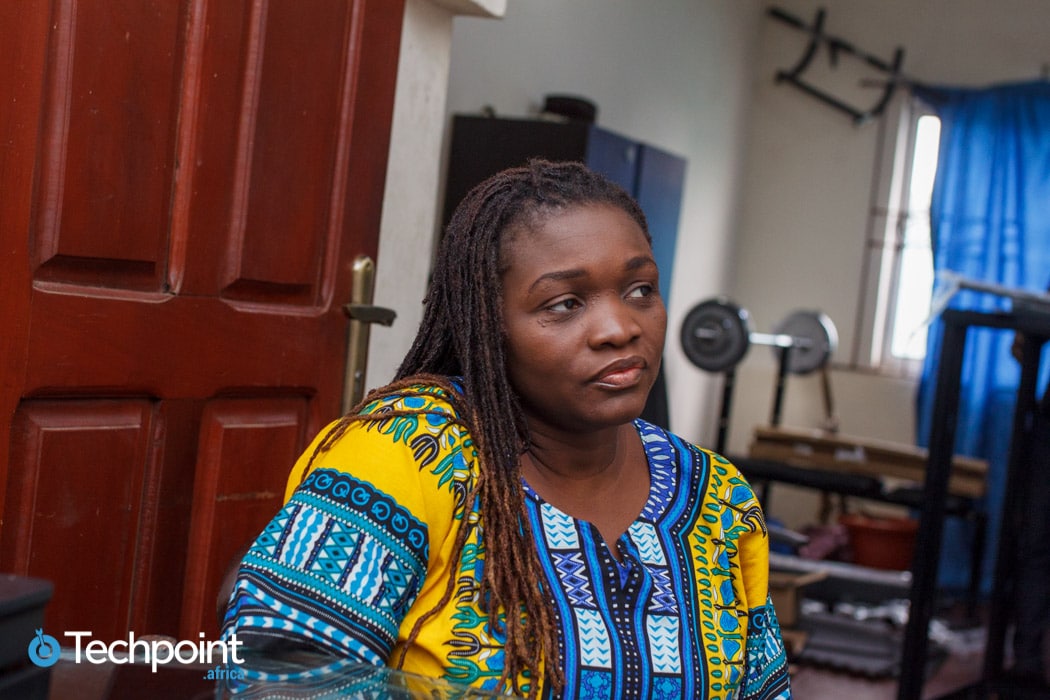What this piece strives to do is give a more detailed view into discussed start-ups; finding out why investors and entrepreneurs have decided to spend time, money and energy into developing such companies. We want to see where the opportunities lie, where the challenges lay wait and then make conclusions on the realistic potential for this company succeeding at its chosen space. It is a business review, whether or not, the company is open for investments, partnerships or ready to employ people with your skill set.
Today, we discuss GingerBox. GingerBox’s current value proposition is the delivery of fruits to business and consumers alike. It recently closed funding from 440.ng a technology accelerator. As of entering the accelerator it was known as Jaramall, a grocery delivery company. During its time there, it has done a mini-pivot: delivery of fruit (baskets) to business and consumers.
Customer Attraction Strategy
From their website, it’s obvious they are more interested in delivering to businesses rather than consumers. This is a very understandable strategy. Delivering 15 items of fruits to one location—because of group buying of office members—is far more profitable than delivering 2 to 3 items of fruit to one person.
But because of this strategy, it’s a little more difficult to sell over the internet. Because it involves group commitment, it’s a lot more difficult to get one man to see an advertisement on the internet and decide to rally his co-workers to buy fruits with him, than if he were just buying it himself.
I predict they will need foot soldiers to get people using this service the way they would love. This is not a bad model, either. It can help them scale with precision. With the involvement of foot soldiers, they can decide to attack offices by area, focusing sales to places where they know they have a firm grip on their logistics game.
Why can’t a co-worker buy for just himself?
GingerBox uses a basket model where the minimum order is worth ₦3, 000. The average fruit buyer doesn’t buy that many fruits at once, especially when you think about the perishability of these fruits. If a mother bought for her family on the other hand, this could work well.
Right now, their fruit baskets has a fixed number of fruits, also it also has a very limited variety of fruits. This could be very limiting for the mother, who wants apples but doesn’t care much about grapes.
Size of space
When you think about selling fruits, it’s difficult to see it as a very attractive, large space that people want to run to, set business and start making loads of money. But it’s fairly large. According to The National Bureau of Statistics’ Consumption Pattern in Nigeria 2009/10 report we see that Nigerians spend about $1.8Bn on fruits a year. This is a very large space, much larger than a lot of the markets that many ‘tech’ businesses in the country are targeting.

Join over 3,000 founders and investors
Give it a try, you can unsubscribe anytime. Privacy Policy.
Commercial Prospects
To fully understand what the commerciality of the fruit & grocery industry is, I looked at benchmarks describing what the margins for such a space were. The prevailing picture I got was that fruits attract a 20% gross margin (this means if they sold an orange for N100; the company would most likely have bought it for N80). This then allows a respectable 5 – 10% in net margins (profit after all other costs). This means that if a company had $1.8Bn in revenue, it would have a net profit (earnings) of $90m if it operated at 5% net margins. At a standard 20 times earnings, this company would be worth $1.8bn, the same amount as revenue.
Value Proposition?
The market is large, but I struggle a lot to see their particular value proposition. Yes, fruits are good for the body, but why should I buy fruits from you? Fruits are a commodity, they are cheap, their prices don’t vary much and the selection of fruits you can buy is limited and doesn’t grow. Also, we don’t have a distribution problems as far as fruits is concerned. As long as a fruit is in season in the country, we can get them just down the street, when we’re going home, when we’re going to work, or during work.
I think there are four different points that anyone in the fruit market could compete on:
- Convenience
- Cost
- Selection
- Hygiene
Selection
They currently have a selection issue, they’ll have to solve. They don’t offer a big enough variety of fruits. Also, if they’re going to bundle fruits, they’re going to have to let the consumer bundle their own group of fruits. What I suppose they do is create an editable basket where they have a comprehensive list of fruits that can be added in whatever quantity the consumer or group of consumers want. I believe the company plans to expand their offering to all the possible fruits Nigerians consume. With this, the company can get a useful advantage over other sellers.
Cost
Currently their fruit basket is not cheaper than the average price in the market. However, if their service is more convenient this will not be a problem. I am worried though, that they may not be more convenient.
Convenience
Now, if a couple of co-workers decided to buy a basket for themselves, sharing the fruits would be an issue. Who takes what? And in what quantity? If one person bought a basket, as I mentioned earlier, bundling would still be an issue (I love the apples but I don’t care much for the grapes. Is this worth it?) and this time, the quantity of fruits might be too much.
As mentioned earlier I believe they should create an editable basket where they have a comprehensive list of fruits that can be added in whatever quantity the consumer or group of consumers want. Another problem still occurs in this bundling method: compiling payment and responsibility. Which co-worker will agree to take on the stress of compiling the basket for the office? And then the more gruesome task of compiling the payment (maybe if GingerBox collaborates with a group payment platform like RSVP they can solve this problem)?
When you ask questions like this, you realize it’s still a lot easier to buy fruits yourself when eating your lunch and from your regular person on your way back home.
Hygiene
I don’t see how GingerBox could compete better than the road side fruit seller could on a hygiene level. Most fruit where the skin is edible are usually washed before consumption.
Their value proposition isn’t clear to the consumer. More than ever, their model seems to be tailored to the company’s convenience. If they were to make fruits work on a delivery model, this is how it would work.
This is a long winded piece, hence the splitting into parts. Read part 2 here.





















